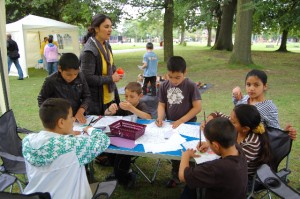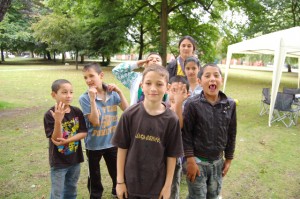 Here’s an unforgettable question that I was once asked, ridiculous and thought-provoking in equal measure: “So tell me, what made you want to be an Asian journalist?”
Here’s an unforgettable question that I was once asked, ridiculous and thought-provoking in equal measure: “So tell me, what made you want to be an Asian journalist?”
Tempted to claim that my options were limited by the fact that the corner shop didn’t have any vacancies, instead I told my newspaper executive interrogator that I became an Asian journalist because being a Swedish one would have been, well, a bit tricky.
He looked confused, then chastened and the subject wasn’t mentioned again. More than a decade on, the question still resonates.
Most obviously, it reveals the preconceptions, based on differences – be that difference in health, gender, colour, class, income or age – that one person can have about another.
Secondly – and this brings me to launching this blog – the question is a reminder about what journalism and writing can do; inform, provoke debate and offer something new to the reader. Not only will The Social Issue be a platform for stories, projects and ideas that inform and spark discussion, but it should challenge preconceptions. That might be because it features a project that’s solved a seemingly insurmountable problem, or because it features someone doing something extraordinary.
To return to that initial question, I thank my parents for the fact that I became an Asian journalist. They are Asian. Therefore I am Asian. Half my career goal was met by virtue of my being born. In my bid to be an Asian journalist, I only had a 50% chance of failure.
More seriously, my parents lived in an area with good state schools. I had access to higher education and post-graduate training before the crippling student fees system came in, and I began my job hunt at the tail end of the last recession in the 1990s.
Today’s young person is looking for training and qualifications when providers are oversubscribed and seeking work in an economically hostile environment. There are 562,000 young people unemployed, according to the Office for National Statistics. And the situation can be worse if you happen to be black or from an ethnic minority. Analysis from the IPPR earlier this year shows that 48% of black 16-24-year-olds are now unemployed along with 31% of young Asian people. The rate of unemployment among white young people stands at 20%.
To compound the problem, what will become of community-based projects to raise aspirations through positive role models for black and Asian young people when funding is so squeezed?
The Black Training and Enterprise Group recently launched a small grant programme to help local voluntary and community groups working with black boys and young men across England. The REACH Programme: Community Engagement Project is laudable but small scale, offering £500 grants to local groups that can host events which encourage and inspire young black males to succeed in education and work.
There are many innovative community-based training projects out there that inspire and encourage young people in their chosen careers – but how many of them are self-sustaining enough to survive in the funding desert?
One organisation that I’m a fan of and that I’m involved with as a trainer is Poached Creative. The east London social enterprise is a writing and design company, training the young and long-term unemployed in media and communication skills.
If you know of other successful projects along these lines – better still if you’re a young person who’s benefitted from them – drop me a line. Alternatively, if you want any tips on how to be an Asian journalist, I’m your woman.



 Here’s an unforgettable question that I was once asked, ridiculous and thought-provoking in equal measure: “So tell me, what made you want to be an Asian journalist?”
Here’s an unforgettable question that I was once asked, ridiculous and thought-provoking in equal measure: “So tell me, what made you want to be an Asian journalist?”